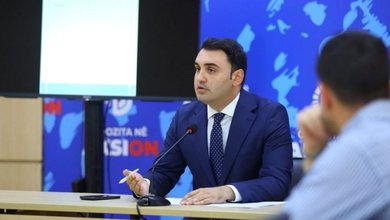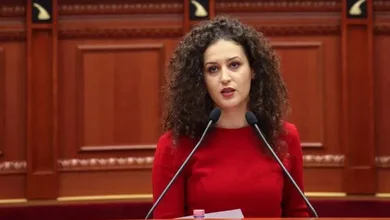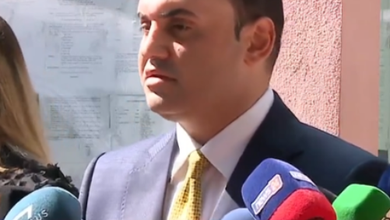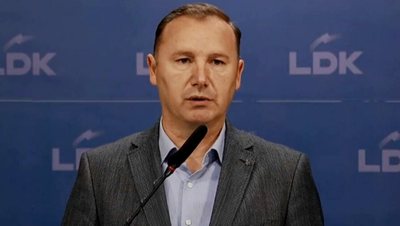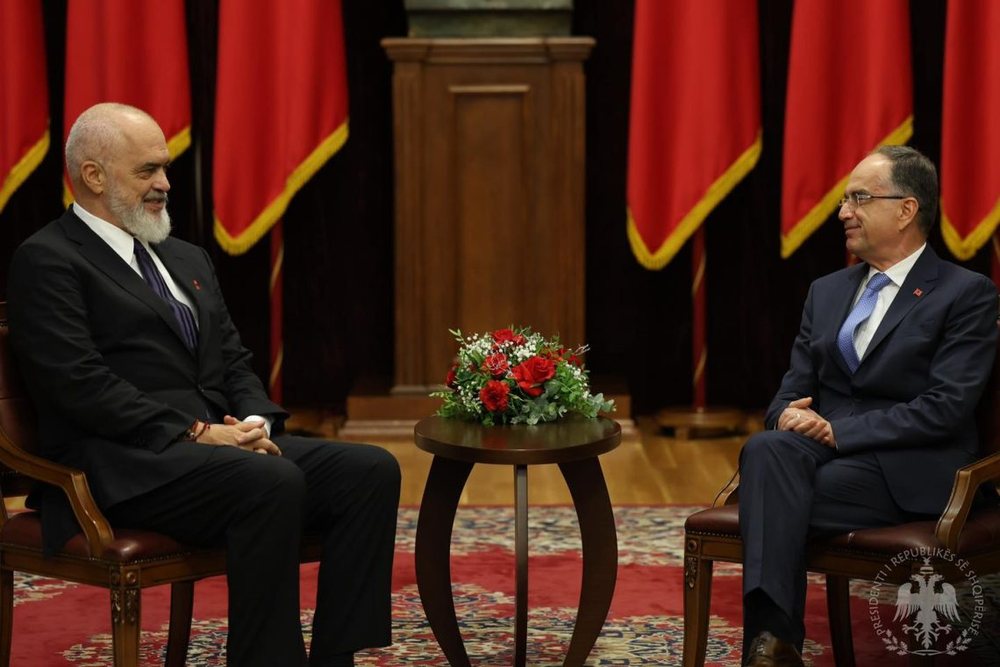
The new "Rama 4" government began work on Thursday with the decision to dismiss Socialist Mayor Erjon Veliaj, as he is awaiting trial in detention on charges of corruption and money laundering.
The Socialist councilors of the Municipality of Tirana, under the instruction of Prime Minister Edi Rama, decided to propose to the Council of Ministers his dismissal for reasons of absence from duty, seven months after Veliaj was arrested at the request of SPAK.
And while Rama justified this political act with the capital's urgent need for a serving mayor, there are at least four other municipalities without mayors due to resignations. The mayors of Mat, Berat and Tepelena left in the spring after Rama included them on the list of candidates for MPs for the May 11 elections, while two weeks ago the mayor of Vlora, Ermal Dredha, also resigned.
Despite constitutional provisions for the announcement and organization of new partial elections, the elections in these municipalities continue to remain hostage to unclear procedures between the prime minister and the president, who, by playing "ping-pong" with responsibilities, have violated legal deadlines.
The Constitution of Albania recognizes the President in Article 92 the power to set the date of elections for the Assembly, local government bodies, and to hold referendums. This power is limited in time by Article 10 of the Electoral Code, which specifies that: “In the event of termination of the mandate, for the reasons provided for in Article 115 of the Constitution, elections shall be held no earlier than 30 days and no later than 45 days from the date of notification of the termination of the mandate.”
But the Presidency claims that the vacancy must be officially notified by the Prime Minister, leaving the announcement of partial elections de facto in the hands of the ruling majority, regardless of legal deadlines and provisions.
Double standards
The 2019 local elections set an electoral precedent when the then opposition, the Democratic Party and the former Socialist Movement for Integration, decided to boycott them, causing a political stalemate.
Former President Ilir Meta, in an attempt to resolve the impasse, repealed his decree to hold the elections on June 30, setting a new date for October. But the Assembly passed a resolution declaring the president’s decree invalid, arguing that it violated legal provisions. The Socialists then launched a parliamentary procedure to dismiss the president for exceeding his powers.
Referring to the long institutional clashes between the former president and the Parliament, Rigels Xhemollari from the "Citizen Center" sees the current behavior of the Socialist Party as linked to narrow political interests.
“In 2019, the SP had a political interest in taking control of all municipalities, to maintain central power, while now that it has it, they are simply a waste of energy,” he says, adding that on the other hand, “the opposition simply sees these municipalities as impossible battles.”
Even for local affairs expert Agron Haxhimali, who heads the Institute of Municipalities, the behavior of institutions conflicts with the provisions of legal deadlines and weakens the role of municipalities.
"The procedures for replacing resigned mayors are in violation of constitutional deadlines," he told BIRN, calling the majority's behavior "double-standard."
"What is happening today could be equivalent to the situation that occurred in 2019 for the local elections, when the Socialist Party rejected the president's decree to postpone the elections due to these deadlines," Haxhimali added.
For civil society representatives, the majority's behavior is not only in violation of the law, but also comes in the wake of a series of decisions with consequences for local autonomy.
"The way the central government is stripping local governments of their powers, by taking away water, waste management, construction permits or influencing the appointment and dismissal of directors, makes it clear that the majority does not prioritize municipalities and is preparing a reform to further undermine their autonomy," Xhemollari concluded. /BIRN/





